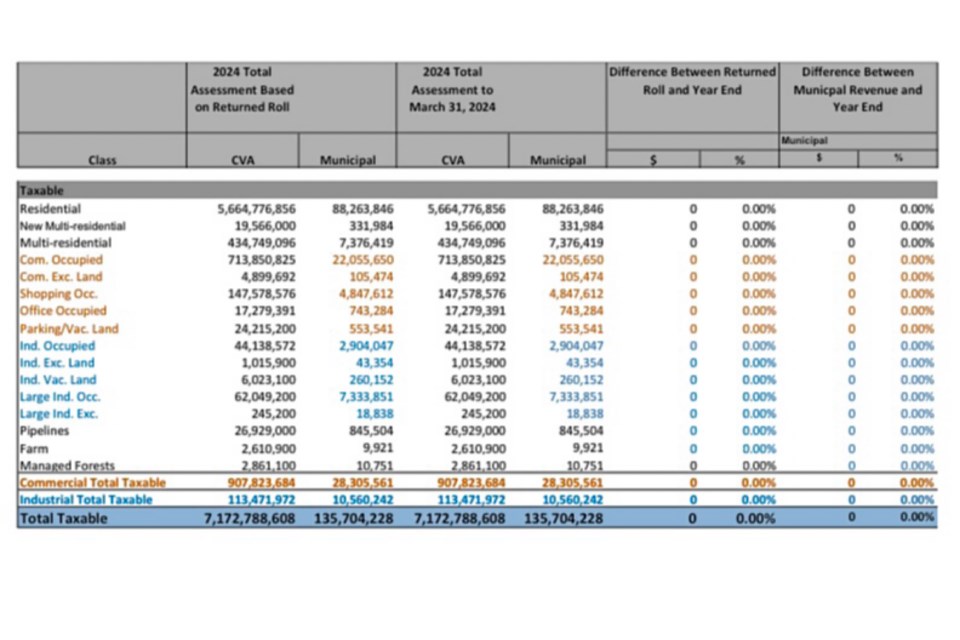NOTE: After this article was published, a SooToday review of recent assessment numbers found that first-quarter statistics are far from indicative of annual growth, and mildly negative growth is not uncommon during this period. We have altered the headline and image of this article to reflect this context
On Monday city council will receive a financial update on its fiscal first quarter ended March 31.
It's pretty dry stuff.
"The results are not indicating any significant financial variances at this time," says Steve Facey, the city's manager of finance.
Even the cost of keeping our streets clear of winter snow and ice, which can change significantly from year to year, is where it would normally be: $2.74 million spent so far of the $7.08 million budgeted for 2024.
The report does contain one interesting observation, however, and Facey's report to Mayor Matthew Shoemaker and councillors has very little to say about it.
"Assessment growth represents zero activity for the first quarter," Facey says.
"This could be a timing issue and staff will provide council an update in the third quarter of 2024," he adds.
Assessment growth results from construction or expansion of buildings, offset by assessment corrections and revisions.
It provides the municipality with added tax revenue for new services that support the public good.
Lack of assessment growth generally means we can't afford shiny new services.
Sault Ste. Marie has experienced an uninterrupted 17-year streak of annual assessment growth since 2006.
During the first three months of 2024, however, there hasn't been even a single-loonie assessment increase in any of the 16 property classes (see table on the second page of the photo gallery above.)
During the city's 2024 budget deliberations, Shelley Schell, chief financial officer, predicted higher assessment growth this year.
"The average assessment growth for 10 years is 0.61 per cent, and the five year average is 0.43 per cent. Though the 2023 estimated assessment growth is lower than 2022, it is anticipated to be higher in 2024 and onward with the focus on Ontario’s housing targets and incentives," Schell wrote in her introduction to the draft budget.
"The city's assessment growth has been very low in the last several years. There is a growth trend that started in 2022 and with the anticipated incentives to increase housing units in the community coming in 2024, the trend is anticipated to continue in the near term," she said.
"The cost to provide services continues to increase at a greater rate than assessment growth and will put additional burden on the assessment base.
"The province has paused the four-year reassessment cycle, which was slated to be updated for 2021, up to and including 2024 noting that it will provide stability to the taxpayer," Schell said.
Monday's city council meeting will be live-streamed on SooToday starting at 5 p.m.
